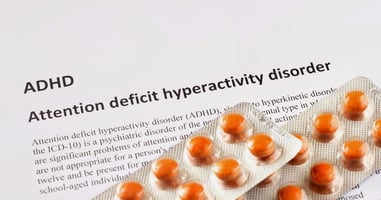Many Youth With ADHD Fail to Take Stimulants as Prescribed, Study Suggests
 |
“These findings [underscore] the need for active efforts to better understand the problem and develop approaches to help mitigate it, especially in primary care settings,” wrote lead author Joseph Biederman, M.D., chief of the Clinical and Research Programs in Pediatric Psychopharmacology and Adult ADHD at Massachusetts General Hospital, and colleagues.
The researchers analyzed prescription and sociodemographic data from the Partners Health Care Research Patient Data Registry of Massachusetts General Hospital for 2,206 patients aged 4 to 17 years who had been prescribed any of the following stimulants between January 1, 2015, and December 31, 2016: amphetamine/dextroamphetamine, dextroamphetamine, dexmethylphenidate, lisdexamfetamine, or methylphenidate. The researchers included medications prescribed as a single prescription (30-day supply) and medications with prescriptions postdated by up to three months (60- or 90-day supply).
The researchers defined a patient as being “adherent” if a single index prescription was followed by a second prescription within 90 days.
In cases in which index prescriptions were postdated by two months (that is, two prescriptions written the same date), a patient was deemed adherent if a third prescription was filled 31 to 120 days after the first prescription. In cases in which index prescriptions were postdated by three months, a patient was considered adherent if the fourth prescription was filled 61 to 150 days after the first prescription.
Of the 2,206 patients, 95% had single index prescriptions, 4.9% had prescriptions that were postdated by two months, and 0.5% had prescriptions postdated by three months. Only 46% (n=1,023) of patients met the researchers’ criteria for medication adherence, indicating that they refilled their stimulant prescriptions quickly enough to be considered consistently medicated.
Patients who received prescriptions from psychiatric clinics rather than nonpsychiatric clinics had a small but significantly greater likelihood of adherence to treatment. Additional analysis revealed that children tended to adhere to the medication regimen somewhat more than adolescents and adherence was slightly better in boys than in girls.
Biederman and colleagues noted that low adherence may reflect several factors: the complexity of renewing prescriptions for stimulants, which are schedule II medicines; negative side effects of stimulants, such as lack of appetite and difficulty sleeping; or parents’ ambivalence about their child taking medications for ADHD.
“Low adherence may also stem from misinformation or biases about stimulants in the media,” they wrote. “More research is needed to clarify the causes of low medication adherence in ADHD to develop appropriate measures to mitigate them.”
For related information see the American Journal of Psychiatry article “Continued Benefits of Methylphenidate in ADHD After 2 Years in Clinical Practice: A Randomized Placebo-Controlled Discontinuation Study.”
(Image: iStock/Brian)






